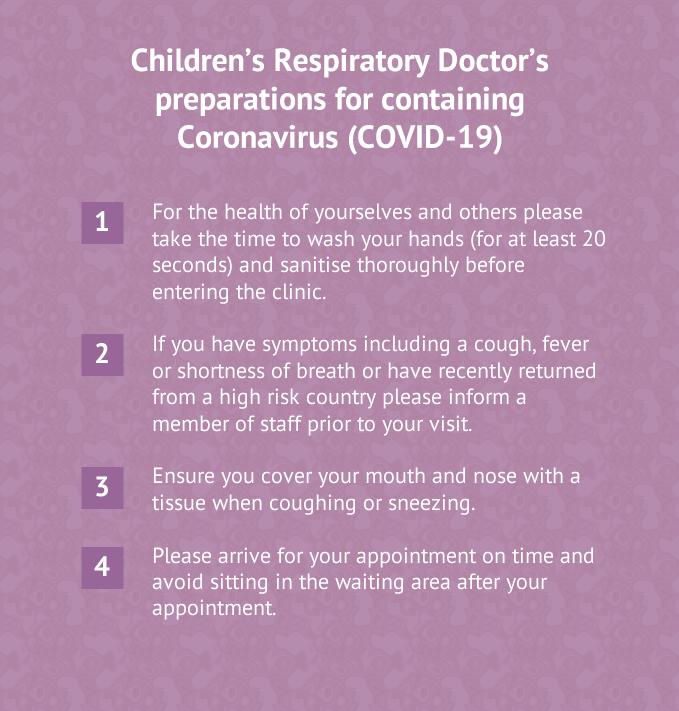Do you think your child has asthma? Spotting the symptoms can be trickier than you might think, because asthma doesn’t always appear as a sudden attack. The symptoms can actually be very similar to a cold or infection. However, there are a few clues you can use to tell the difference between asthma and other possible causes.

Is Your Child at Risk of Asthma?
It isn’t possible to predict which child will get asthma, so all of us need to be able to recognise the signs. However, some children are more likely to be affected than others. If your child is at higher risk then it’s even more important for you to know how to spot possible signs of asthma.
Your child is more likely to have asthma if he or she has:
- A family history of asthma, especially if one or both parents are affected
- Another condition related to their immune system, such as eczema, allergies or hay fever
- Had problems with viral respiratory infections in early childhood
- Spent time in a smoky environment or is exposed to lots of air pollution
- Excess weight
Spotting the Signs of Asthma
Asthma can affect children in different ways and the symptoms can easily be confused with other conditions. The following symptoms can all be caused by asthma, but they can vary from very mild to severe. When they’re caused by asthma, they will tend to appear repeatedly and they may be triggered by certain activities or environments.
Coughing:
Coughing is one of the possible symptoms of asthma, but unfortunately it can be a sign of lots of other conditions too. Lots of different colds and infections can cause a cough, but there are some things to look out for. Your child’s cough is more likely to be caused by asthma if:
- There aren’t any other signs of infection such as a fever or sore throat
- The cough doesn’t go away within a couple of weeks or keeps returning
- It gets worse at night or in the early mornings
- The cough is triggered by exercise, crying, pollen, dust or pet hair
However, even if your child’s cough meets all of these criteria, it can still be difficult to be sure of the diagnosis. It’s a good idea to see a respiratory specialist, especially if your child is still very young. It isn’t always possible to be sure that the cause is asthma in under 5s. Even in older children, we might have to test the diagnosis by seeing if your child responds to asthma medication before we can be sure.
Wheezing:
A wheezing or whistling sound as your child is another characteristic sign of asthma that can also be caused by respiratory infections. It’s also very common in babies and very young children, just because they have such small airways. Even a tiny bit of snot is going to create a wheeze.
The best clue that wheezing is caused by asthma rather than an infection is that there aren’t any other cold-like symptoms (other than a cough). Asthmatic wheezing will also be more persistent. Your child won’t wheeze all the time, but you may notice it happening repeatedly over many weeks or months. You might notice that it tends to happen in certain situations, for example when your child runs around or comes in contact with furry pets. An infection should go away within a week or two, with no more wheezing unless your child catches another cold.
Breathlessness:
Breathlessness can seem like a more obvious sign of asthma than coughing or wheezing, although it can also have other causes. Children can get breathless when they’re excited, running around or have an infection. If your child often seems to breathe quickly or you’ve noticed that their bodies move a lot as they breathe, then this could be a sign of asthma. As with the other symptoms, breathlessness often happen when children are active or exposed to triggers like pollen and pet hair.
If the breathlessness gets very bad or your child seems to be having trouble breathing then you should get help right away. It could be an asthma attack or another serious condition that requires urgent medical attention.
Tightness Across the Chest:
Asthma happens when the airways are narrowed, so it often causes a feeling of tightness across the chest. This is probably the most difficult symptoms to recognise in other people, especially in younger children who aren’t able to explain their symptoms clearly. Children will often describe it as a tummy ache. You might also notice that they’re rubbing their belly or chest, even if they aren’t able to tell you where it hurts.
As with the other symptoms, there can be other causes, such as a chest infection. However, with any of these possible signs of asthma it is a good idea to consult a doctor if:
- They happen often
- There are no other symptoms of infection
- The problem is triggered by exercise or allergens
- The symptoms are severe or you’re worried
Recognising an Asthma Attack
The symptoms of asthma can be relatively mild, which makes them harder to spot in some children. However, they can also occur more severely and suddenly as an asthma attack. An asthma attack can cause severe breathlessness and breathing problems. You might notice that your child:
- Is breathing so heavily that their throat or tummy sucks in or their ribs stick out
- Can’t talk properly because they are having trouble breathing
- Aren’t behaving like themselves, have gone quiet or seem very tired
- They have asthma symptoms that are getting worse
- Their lips or tongue are bluish in colour
If you notice these kinds of symptoms then you need to call an ambulance or go to your nearest A&E right away. An asthma attack is a medical emergency that requires immediate treatment.
Knowing the possible signs of asthma and what to do about them could make all the difference if your child is affected. Which signs did you know already?



